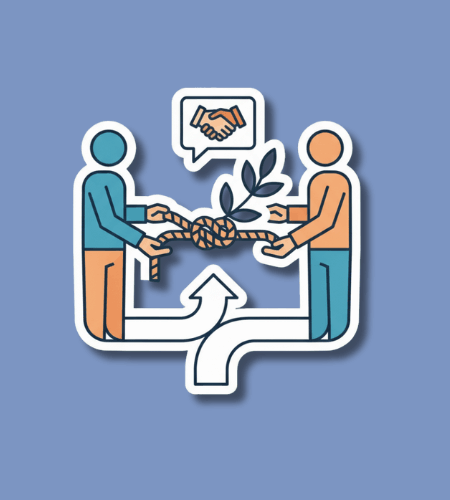Every year on the third Thursday in October we observe Conflict Resolution Day, and in 2025 it falls on October 16.The day encourages people, organizations, and communities to consider and practice peaceful, creative ways to deal with disagreement or conflict.
Table of Contents
History of Conflict Resolution Day
Conflict Resolution Day was introduced in 2005 by the Association for Conflict Resolution (ACR) as a way to raise awareness about mediation, arbitration, conciliation, and other non‑violent methods to resolve disputes.Over time, it has grown into a widely recognized observance, especially in the United States, though many around the world use it as an occasion to highlight conflict resolution skills in schools, workplaces, legal systems, and community settings.
From its beginnings, the day has been tied to the idea that conflict isn’t inherently bad but that how we respond to it is what matters. The founders hoped that designating a particular day would encourage more people to learn and use peaceful dispute tools, rather than avoid or escalate disagreement.
Why is Conflict Resolution Day important?
Conflict is part of life: within families, between friends, at work, across political and cultural divides. But the ways those conflicts are handled can either build bridges or burn them. This day invites us to pause and reflect on whether our usual reactions—anger, avoidance, dominance—are actually helping or hurting our relationships and communities. It gives permission to step back, rethink, and consider gentler, more constructive paths.
Moreover, Conflict Resolution Day helps us remember that many systems—schools, courts, workplaces—benefit when people have tools to dialogue rather than litigate or battle. When mediation, restorative practices, or simple conversations are valued, the cost in stress, time, and damage often goes down. It turns conflict from a “crisis” moment into a chance for growth, understanding, or even innovation in how people relate.
Here are a few more thoughts on why it matters:
- It highlights skills we often neglect (listening, empathy, negotiating)
- It encourages institutions to build capacity for peaceful dispute processes
- It helps shift culture from “win/lose” to “win/understand”
- It supports prevention—resolving small tensions before they snowball
- It reminds us that relationships are as important as “being right”
How to Celebrate or Observe Conflict Resolution Day
Even if you’re not a mediator or peace‑professional, you can meaningfully mark this day. Consider starting with yourself: reflect on a recent disagreement and ask whether you could have handled it differently. Then, intentionally practice one skill—listening fully, asking open questions, pausing before reacting. Sharing that with someone you trust can make it more real.
In communities, schools, workplaces, or local groups, you might host a short workshop or discussion circle on resolving conflict—no deep prep needed. A conversation café, a role‑play, or a panel of people who’ve practiced conflict resolution can spark awareness. You might also share resources (books, podcasts, videos) or initiate a small mediation space.
Here are some simple ideas:
- Invite a friend to talk through a misunderstanding you’ve been avoiding
- Organize a casual “peace circle” or meeting in your neighborhood or team
- Share a book or podcast about conflict resolution with others
- Offer to mediate a small tension (e.g. between colleagues or in community groups)
- Reflect (journaling or conversation) on how your approach to conflict has evolved
Conflict Resolution Day Dates Table
| Year | Date | Day |
|---|---|---|
| 2026 | October 15 | Thursday |
| 2027 | October 21 | Thursday |
| 2028 | October 19 | Thursday |
| 2029 | October 18 | Thursday |
| 2030 | October 17 | Thursday |
Subscribe to our newsletter and never miss a holiday again!

